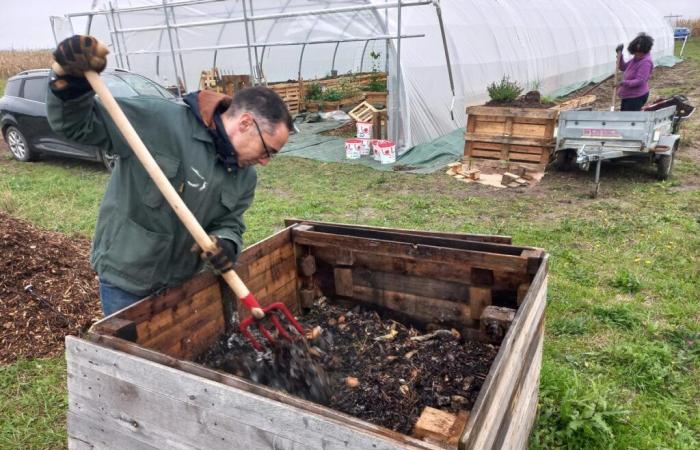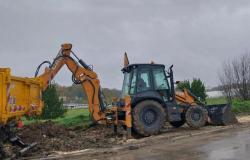QWhat happens to the left-over decorative salad leaf, the mouthful of hamburger, the three fries left on the plate in a restaurant? Until December 31, 2023, this “bio-waste” (1) ended up without distinction in the so-called ultimate waste bin, this non-recyclable waste intended for incineration. Since 1is January 2024, the communities responsible for collecting and processing waste are required to implement differentiated collection of this bio-waste. For individuals. Professionals must assume their responsibility in this area.
Among, in particular, the approximately 350 restaurants listed in Pays Royannais, everyone has their own solution. In the absence of controls, for the moment, most establishments maintain their habits: “green” trash, neither seen nor known. Some resort to “someone who comes” to take their bio-waste. Without traceability. Julien Martin can attest to the compliant treatment of the bio-waste he collects.
Established since 2023 as a “local player in the prevention and management of bio-waste and food waste”, Étaulais has been offering a new service since 1is August, the logical continuation of his own professional reconversion: the removal and treatment of professionals' bio-waste.
Recovery materials
Julien Martin devotes one day per week to the direct collection of this bio-waste. His outlet: a composter, which he installed on the land operated at Chay by Luciana Fondacci, a market gardener specializing in mini-vegetables. In a few months, the market gardener will benefit from the compost to enrich the soil of her vast plot. A win-win arrangement.
I made the composter myself, with recovered pallets
By making a professional shift in the field of waste management, Julien Martin wanted to “give meaning” to his civic commitment, firstly, in reducing the production of household waste. “Sense”, the one who trained to become a “master composter” gives it at all stages of his activity. “The buckets that I provide to my customers to store their bio-waste are given to me by a restaurateur, these are tomato sauce packaging buckets. I also made the composter myself, with recovered pallets. » He carries out his collection tour in an electric vehicle.
A lower cost service
Restaurants and hotels in Saujon and Royan, an organic store in Vaux-sur-Mer, and for several days a nursing home in La Tremblade have already used the service offered by Julien Martin and his small company Géosmine et Cie (2 ). The activity is nascent, the collection is still far from the ton of bio-waste that the legislation would authorize it to collect and process. Julien Martin is therefore tirelessly prospecting professionals. “The answers I hear most often, from restaurateurs in particular, is that they don't have the space to store their bio-waste, that they don't have the time, that it costs. » The master composter demonstrates pedagogy, defeats these pretexts.
The cost of this new separate sorting obligation, in particular, is a false problem, according to Julien Martin. He charges 25 euros per month for his service, for the weekly removal of two buckets with a capacity of 11 liters. “I haven’t seen one yet,” smiles the person concerned. Fortunately, in the coming weeks, he will complete his activity by ensuring collection throughout Charente-Maritime on behalf of a Bordeaux company with whom the Royan Atlantique urban community has put him in contact.
For BicyCompost, Julien Martin will specifically collect bio-waste from nursing homes in the department. While developing its activity in Pays Royannais. “I am already preparing the manufacture of a second composter”, always with recycled materials, to remain consistent. This compost specialist can be confident. The obligation to treat bio-waste separately is being implemented with a certain latitude, but professionals are already required to comply. And to prove that they do it, in the event of an inspection.
(1) Article L. 541-1-1 of the Environmental Code defines biowaste as “non-hazardous biodegradable waste from gardens or parks, food or kitchen waste from households, offices, restaurants , wholesale trade, canteens, caterers or retail stores, as well as comparable waste from food processing plants.
(2) Géosmine et Cie, 22, rue des Niels, 17750 Étaules. Such. 07 48 11 25 43. E-mail: [email protected].






